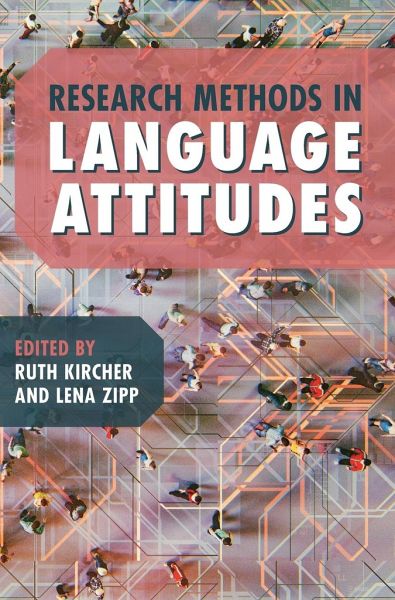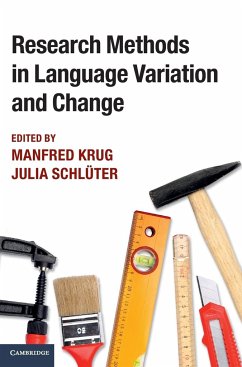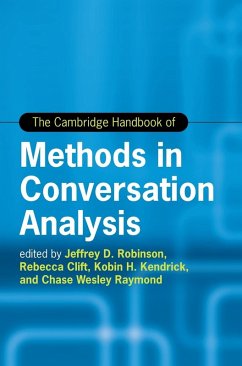
Research Methods in Language Attitudes
Versandkostenfrei!
Versandfertig in 1-2 Wochen
106,99 €
inkl. MwSt.
Weitere Ausgaben:

PAYBACK Punkte
53 °P sammeln!
Attitudes towards spoken, signed, and written language are of significant interest to researchers in sociolinguistics, applied linguistics, communication studies, and social psychology. This is the first interdisciplinary guide to traditional and cutting-edge methods for the investigation of language attitudes. Written by experts in the field, it provides an introduction to attitude theory, helps readers choose an appropriate method, and guides through research planning and design, data collection, and analysis. The chapters include step-by-step instructions to illustrate and facilitate the us...
Attitudes towards spoken, signed, and written language are of significant interest to researchers in sociolinguistics, applied linguistics, communication studies, and social psychology. This is the first interdisciplinary guide to traditional and cutting-edge methods for the investigation of language attitudes. Written by experts in the field, it provides an introduction to attitude theory, helps readers choose an appropriate method, and guides through research planning and design, data collection, and analysis. The chapters include step-by-step instructions to illustrate and facilitate the use of the different methods as well as case studies from a wide range of linguistic contexts. The book also goes beyond individual methods, offering guidance on how to research attitudes in multilingual communities and in signing communities, based on historical data, with the help of priming, and by means of mixed-methods approaches.














